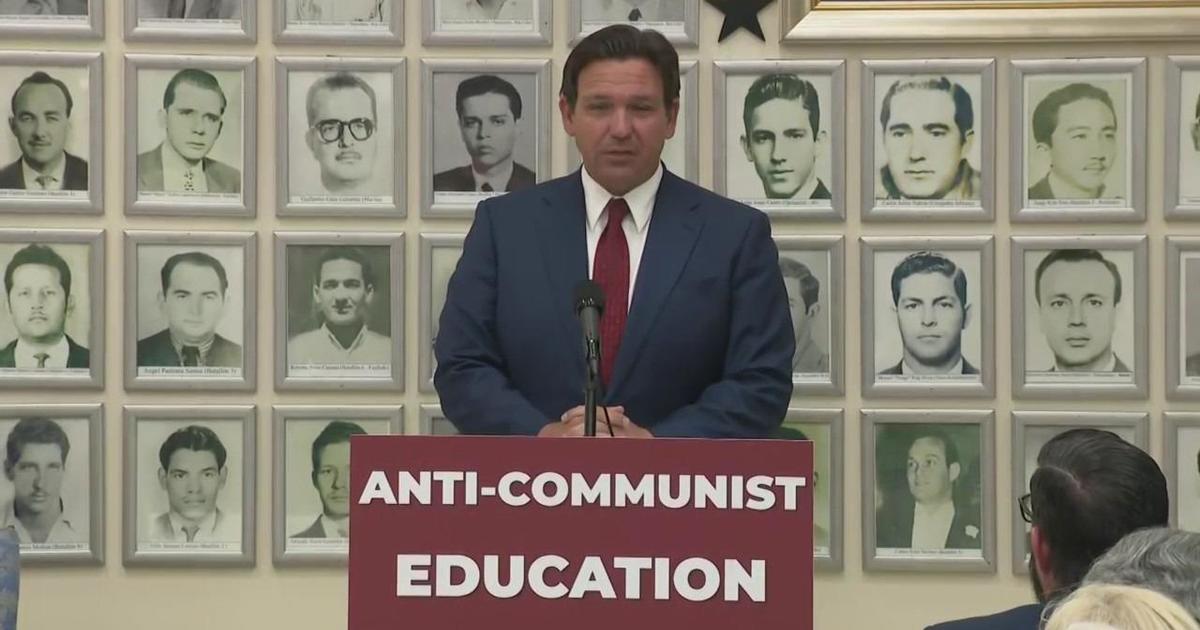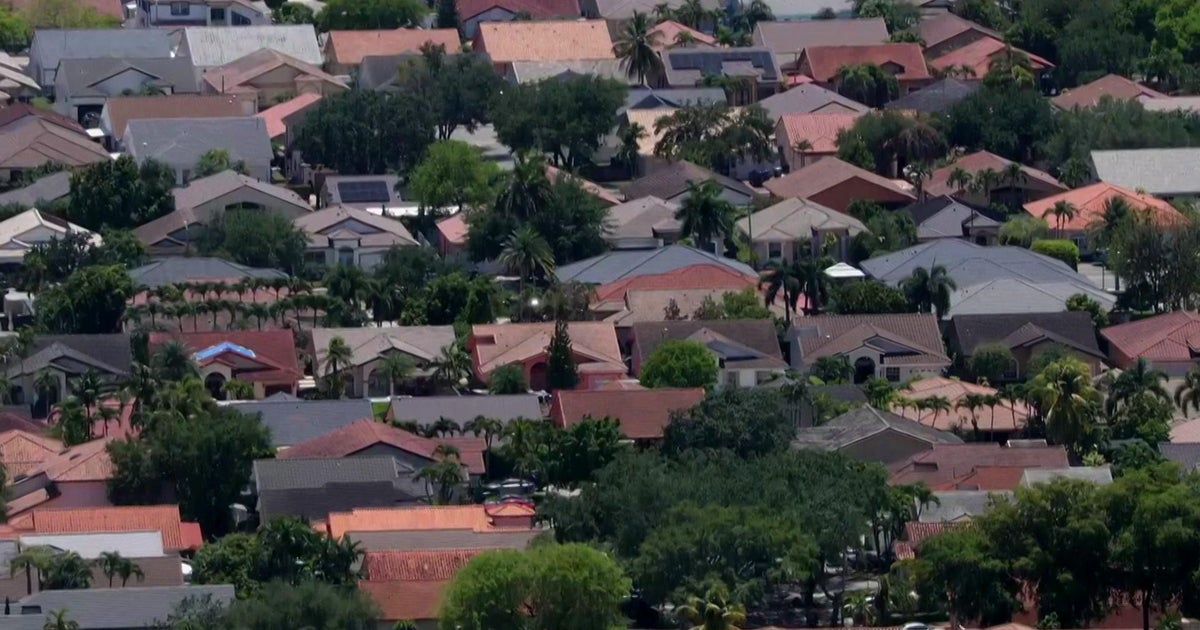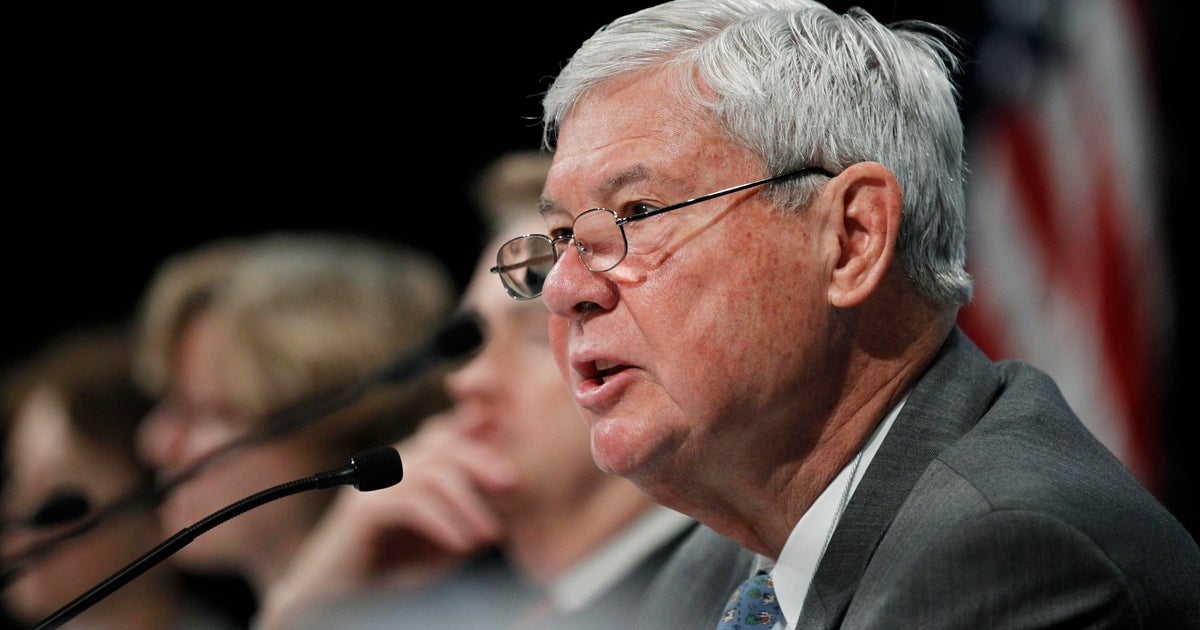White House: Cuba Is Being Removed From Sponsors Of Terrorism List
Follow CBSMIAMI.COM: Facebook | Twitter
MIAMI (CBSMiami) -- Cuba is being removed from a list of state sponsors of terrorism, the White House announced Tuesday, prompting backlash from a South Florida Republican and presidential candidate.
The move is part of an initiative to normalize relations between both countries.
In the President Barack Obama's report to Congress, he said that the government of Cuba has not provided support for international terrorism during the previous six month period and that Cuba has provided assurances that it will not sponsor acts of international terrorism in the future.
These are two reasons required by law to remove Cuba from the list.
All this comes just days after President Barack Obama shook hands with Cuban leader Raul Castro at the Summit of the Americas in Panama.
Cuba has been on the list since 1982 because of its support of leftist insurgents in Latin America.
Click here to watch Lauren Pastrana's report.
U.S. Senator Marco Rubio (R-FL), who announced Monday he is running for president in the 2016 presidential election, condemned the move by the Obama administration.
CLICK HERE to watch Eliott Rodriguez's report
While Rubio is against the move, he said it came as no surprise to him.
"Well, the decision made by the White House today is a terrible one, but not surprising unfortunately. Cuba is a state sponsor of terrorism. They harbor fugitives of American justice, including someone who killed a police officer in New Jersey over 30 years ago. It's also the country that's helping North Korea evade weapons sanctions by the United Nations. They should have remained on the list of state sponsors of terrorism, and I think sends a chilling message to our enemies abroad that this White House is no longer serious about calling terrorism by its proper name."
Congresswoman Ileana Ros-Lehtinen issued a statement on the matter which said, in part, "This unwise decision to remove Cuba from the SST list illustrates that the Obama administration is willing to concede to the demands of the Castro brothers in order to set up an embassy in Cuba. Removing Cuba from the terrorist list does not help the Cuban people as they are still left oppressed and without even basic human rights while emboldening its oppressors."
The administration's acceptance of the move, originally recommended by the State Department, means Congress now has 45 days to approve it.
Reaction to the news from local Cuban-Americans was mostly negative at the popular Versailles Cafe in Little Havana.
"I'm not surprised. I expected that with Panama them shaking hands," said customer Juan Pena, referring to President Obama's interaction with Raul Castro at the Summit of the Americas in Panama last weekend. "He embraces Castro and then doesn't speak to Netanyahu from Israel, which has been an ally to the United States."
"It's unbelievable what he's doing, but Obama doesn't care," said Cuban-American Ruben Behar. "He doesn't care about Cuba. He only wants to do something for history
Rene Iturrey says he was born in Cuba, but later came to the United States and served in the U.S. Navy in the 80s.
"We were fighting terrorism," Iturrey said. "Now Obama empowers out enemies and betrays our friends."
"Nothing has changed," Iturrey added. "Cuba continues to be a sponsor of terrorism and still a regressive regime. Nothing has changed. What Obama is doing is betraying democracy and freedom in Cuba and for anybody else in the country or the world that aspires to be free."
Besides Cuba, there are three other countries on the list including Iran, Sudan, and Syria.
All this comes as the Florida Legislature voted last week to send the president a message that it is against his decision to renew diplomatic relations with Cuba.
Robert Muse, an attorney who specialized in U.S. laws related to Cuba, says even if the designation is removed, other legislation remains in place that places restrictions on Cuba.
The Helms-Burton Act, which strengthened the U.S. embargo against Cuba, is still in effect.
"The practical consequences are very small of taking them off this list but the symbolic impact is very important," Muse said. "It doesn't just remove an impediment, it shows a good faith on the part of the United States to re-conceive this relationship with Cuba which is essentially what normalization requires."



